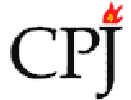A CPJ delegation led by board member Kati Marton and including Senior Adviser Jean-Paul Marthoz and Program Coordinator Nina Ognianova released the report, Anatomy of Injustice: The Unsolved Killings of Journalists in the Russian Federation, at a press conference at the Independent Press Center in Moscow.
The 72-page report examines the killings of 17 editors, reporters, photographers, columnists, and a publisher under the current Russian leadership; documents the government’s inability to solve the cases; examines the reasons for these failures; and offers recommendations to Russian authorities and the international institutions to reverse this record of impunity.
The 17 victims came from big cities and small towns across the Russian Federation. Some had earned international acclaim while others were enterprising local reporters looking to shed light on issues important to their communities. But they all engaged in critical reporting on topics potentially destabilizing for powerful interests – be it in government, business, law enforcement, the military, criminal gangs, or militant groups. In only one case – that of Novaya Gazeta journalist Igor Domnikov, who was bludgeoned to death in 2000 – have the killers been convicted. In all 17 cases, the masterminds walk free.
The failure to achieve justice reflects official shortcomings at every level -political, investigative, prosecutorial, and judicial. Journalist urder investigations, Anatomy of Injustice shows, have been consistently opaque, often marred by conflicts of interest, and frequently subject to undue influence. Time and again, the report shows, investigators have failed to follow up on work-related motives, question relevant witnesses, or pursue potential suspects. At times, seemingly important evidence has been lost or concealed. In some cases, prosecutors have brought weak or even bogus cases to trial. At all levels, authorities have failed to communicate with victims’ families or their legal representatives about even the most basic case developments. The state agencies’ failure to solve these murders, CPJ’s report shows, has undermined the public trust in Russia’s justice system and its capacity to protect all of its citizens.
This atmosphere of impunity has undermined the rule of law and encouraged the enemies of press freedom to continue their deadly censorship. Since Anatomy of Injustice went to press, three more journalists were killed in the Russian Federation, including reporter and human rights defender Natalya Estemirova, who was kidnapped in the Chechen Republic and found murdered in Ingushetia. CPJ is now investigating these new cases as well.
With 17 critical journalists slain this decade, critical media coverage is effectively silenced when it comes to sensitive subjects such as corruption, Kremlin policies in the volatile North Caucasus region, human rights abuses, and government wrongdoing. The unsolved killings have led to the spread of self-censorship among Russia’s press corps, leaving vital issues underreported or entirely uncovered. The international community has suffered as well – being kept in the dark about issues of international significance. As Marton writes in the preface to the report, "Along with the rule of law, an independent judiciary, and an autonomous civil society, free media represents one of the essential pillars of a healthy society. Remove one, and the whole structure may collapse."
In New York, CPJ Executive Director Joel Simon said, "This is a crucial moment for the future of free expression in the Russian Federation. President Dmitry Medvedev has publicly pledged to strengthen the rule of law, fight corruption, and ensure the successful investigation of journalist murders. While the violence is undeniable and the injustice is intolerable, there are reasons for hope."
In July, authorities pledged to restart their probe into the 2004 murder of Forbes the Russian Federation Editor Paul Klebnikov. This month, the Supreme Court ordered prosecutors to further investigate the 2006 assassination of Novaya Gazeta’s Anna Politkovskaya.
In its report, CPJ offers specific recommendations to Russian and international authorities. "This report is more than an expression of our outrage," Marton writes. "We propose concrete guidelines and present hard facts for restarting investigations into these unsolved murders."
President Dmitry Medvedev and Prime Minister Vladimir Putin, as Russia’s top leaders, share a moral responsibility for these cases, CPJ’s report says. They should condemn – publicly and unequivocally – all acts of violence against the press, and they must demand concrete results from law enforcement officials. Prosecutor General Yuri Chaika and Investigative Committee Chairman Aleksandr Bastrykin share practical responsibility. They should order the thorough re-examination of all these cases and hold their subordinates accountable for their actions. International leaders, for their part, must scrutinize Russia’s record of impunity and insist upon improvements.





